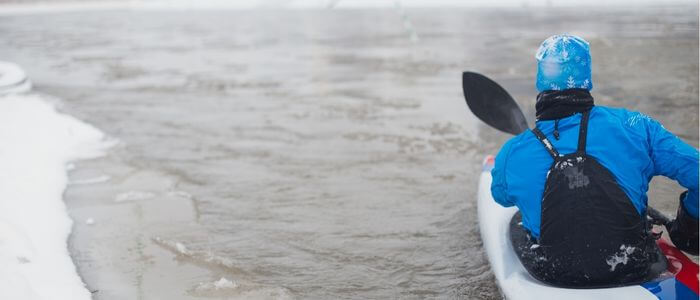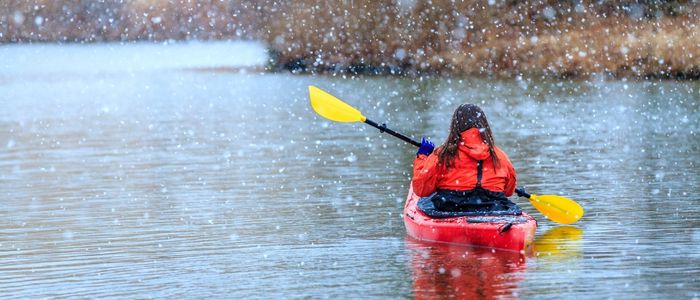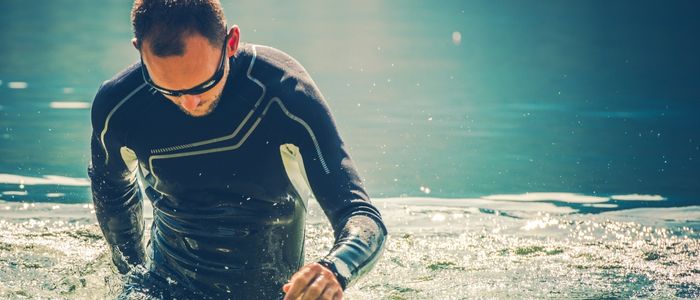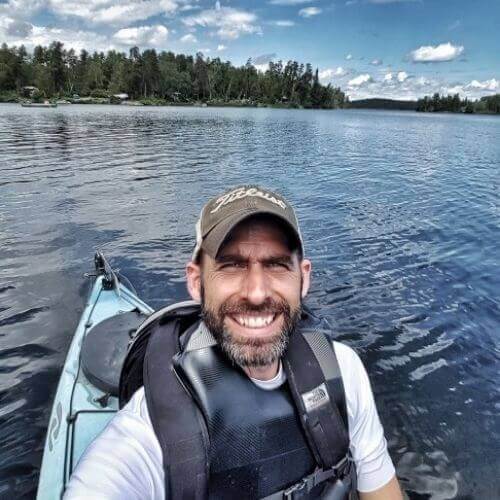
The Winter season can be boring for some people because you have to deal with cold air when you go outside. All you have to do is enjoy indoor activities for a few months. But, some people want to go outside and enjoy the winter season. If you are also one of them, you must wonder, can you kayak in the winter? Is it safe to go kayaking during the winter?
Yes, why not? All you need to do is to gear up according to the safety measures with a personal flotation device and other winter kayaking equipment. Kayaking in the winter is a great way to exercise, see the snow and ice up close, and enjoy some beautiful scenery. It’s also a great way to take advantage of less common opportunities during the warmer months.
Kayaking in winter is not a very difficult job. Kayaking is always fun in summer times. However, you can easily enjoy kayaking in winter by adopting the proper ways and addressing the difficulties.

People tend to go kayaking in the summers and spend quality time with family and friends. But, adventurous people like to adventure in odd times. They choose extreme weather for kayaking. When there is ice in the lakes, the temperature is freezing, fog in the atmosphere, and it gets nearly impossible to do the job. They pack their bags and rush to a running stream or a beautiful lake and enjoy their kayaking.
So you also are wondering whether you can kayak in the winter. How difficult is it? Is it safe? What equipment do you need for kayaking in the winter?
You will have the answers to all these questions by reading below.
Kayaking in winter can become very scary for you if you do not consider a few things before going kayaking in the winter. The only difference between kayaking from summer to winter is the harsh weather and its results. Normally, in winter, the temperature decreases massively. Water gets a solid state like ice at a low temperature. With icy water, it isn’t easy to kayak in the lake. For kayaking, you have to consider a couple of tips.

Everything has its good and bad aspects. Similarly, kayaking in the winter does possess some advantages.
When you go kayaking in the winter, there will be great chances of a low crowd at the lake site. Normally people avoid going kayaking in hard weather conditions. There must be no other than you and your friends and family.
In winter, snow falls in the northern areas, and the lake around the mountains and the trees covered with white snow will present lovely views of nature. The scenery will be beautiful as compared to the summer scenery.
In winter, when there is no one, you would have an opportunity of seeing wildlife. Wildlife prefers their selves to separate from human eyes, changing their position from warmer to colder areas. In winters when there will be no rush around the water body. You can easily benefit from it.
Humans feel proud after achieving something very difficult. Kayaking is a difficult job in the winter. You will be proud after acing the toughest job of managing to kayak in cold weather.
Similarly, you will have to face some challenges while kayaking in winter.
Cold weather can play a decisive role. The hardest job in winter while kayaking is the bear the weather. In cold conditions, the biggest problem is dealing with cold temperatures. Cold temperatures can cause icing in water, ultimately resulting in difficulty in kayaking.
Cold temperatures also impact the quality of kayaking, and it has the potential for frost attacks and different diseases. It’s best to stay out of water below 60 F/15 C, because in the event you get wet in cold water like this, you could risk getting hypothermia, especially as a beginner kayaker.
The human body cannot bear extreme weathering conditions, especially in cold water gaming. Cold water can leave serious impacts on the human body for contact with the human body for longer times. Hours spent in cold water can result in the outbreak of various diseases. It can be reduced with the use of proper winter kayaking gear.
Kayaking in winter requires some extra protective gear and clothing. That can create a serious issue of transportation. When friends plan kayaking in winter, they must carry some extra tent, protective gear, food, and medical assistance. Shifting all this to the kayaking site can become troublesome at the moment. Transporting more items will increase the cost of the kayaking experience.
Following are some important tips for you when going kayaking in winter.
Every sport has its proper and prescribed safety gear for protection. Kayaking in winter requires some extra tools and safety gear for human protection. For safety life jackets, a personal flotation device (PFD) plays a vital role in kayaking in winter. The helmet can prevent serious head injury during kayaking in water over rocky terrain. Thermal clothing can provide an extra warmer feeling in chilly weather conditions.
Never try kayaking alone. Kayaking can be hazardous for a single person. Sometimes turbulent water flow can upside down the boat. Always kayak with partners who may help you in a bad time. It is highly recommended to kayak with a group of a couple of people, especially in winter.
A clear sunny day can rapidly convert into a stormy, rainy disaster. Cold wind can also harm the enjoyment of kayaking on winter days. Heavy snowfall can create visibility problems for kayaks. Normally light snowfall is not considered much problematic. It is necessary to check the weather forecast of the area where you will enjoy kayaking and select the best day for your outing.
In-plane areas, fog can become devastating for kayaking in winter. It can block the eyesight and reduce the speed of the game. It is better to avoid a foggy day. Choosing a day without fog can be best for kayaking. Fog can ruin kayaking, and it is better to avoid it.
Low temperatures can freeze the water beneath the ponds and lakes. It can block the way for the boat. The surface of the water freezes first, and it carries down. Light surface freezing may not be a hurdle in the game of kayaking. However, a thick layer of ice can generate problems for kayaking. Always examine the water and the thickness of ice over it before staring.

Special kayaking suits for winter will help you from hard strokes. These suits will keep your body from moisture, and their perfect design will help you to perform well in handling and peddling the boat.
Static positioning for longer periods can expose your body to the chilly wind, resulting in freezing your body. To avoid freezing your body, keep yourself moving on the boat. It will keep your blood flow intact, and your body will stay warm during kayaking.
Paddling the boat is a heavy workout. It can use your energy rapidly. So, to keep yourself energized during kayaking, carry some energy bars. These energy bars can help you in longer rides and keep you energized to perform your best and enjoy kayaking.
To keep your body’s internal temperature, use hot drinks before starting and after finishing kayaking. Coffee plays a vital role in these kinds of situations. It has caffeine that boosts your immune system and gives you energy.
Your exposed body parts can be attacked by frostbiting. To avoid such conditions, keep your open body parts insulated. Hands can be insulated with leather gloves, and the face can be prevented by a special type of kayaking mask and goggles for the eyes.
So, this was all about kayaking in the winter, but can you kayak in the winter? For safety reasons, it mainly depends on your kayaking experience and also how well you are able to deal with cold weather. It is not a good idea to go kayaking in waters below 60 F/15 C if you are a beginner.
I am sure you will find this guide very useful, and it will answer all your questions. I recommend getting some basic training before heading out on the water if you are a beginning kayaker. If you’re looking for more kayaking tips and tricks, check out our content down below!

Hey there kayak lovers! I’m Jay Schwartz, the author here at Kayak Guidance! You know water sports – you know me! My life is all about it. Kayaking, Paddleboarding, Fishing, Snorkeling and so much more. I love to share my passion and knowledge with all of you.

Hey there kayak lovers! I’m Jay Schwartz, the author here at Kayak Guidance! You know water sports – you know me! My life is all about it. Kayaking, Paddleboarding, Fishing, Snorkeling and so much more. I love to share my passion and knowledge with all of you.

Welcome to KayakGuidance.com! If you’re looking to have some fun outdoor water adventures, then you have come to the right place. We help our readers find the best kayaks and water related equipment to help you have the best time of your life whenever you are engaging in water activities.
This site is a participant in the Amazon services LLC associates program, an affiliate advertising program designed to provide a means for sites to earn advertising fees by advertising and linking to Amazon.com.